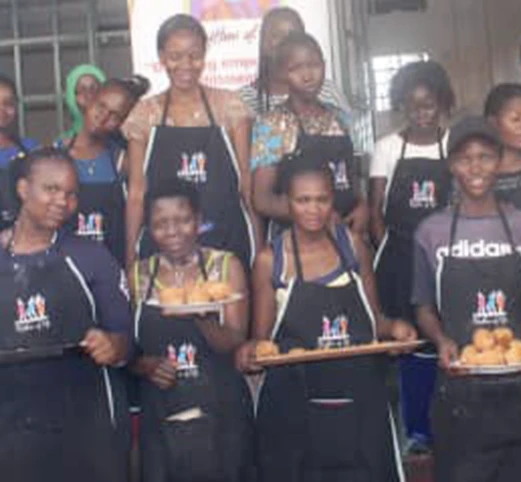There are approximately 1.6 million Ugandan's living with HIV (1), a demographic that suffers significantly from marginalisation and socioeconomic disadvantages. The rate of infection rises drastically for female sex workers (FSW). In Kampala, it is estimated that one in three FSWs are HIV-positive (2). Harriet founded Rhythm Of Life in 2013 to support HIV-positive FSWs and their families. She has been challenged to find a solution for one community challenge whilst at university, which was when she conceived the idea to break the cycle of mother-daughter prostitution.
The project operates via three streams. Through the first, it seeks to equip the women and girls with new skills by full-sponsoring their education at primary, secondary, and tertiary levels. The second is health outreaches, which connect the HI-positive women and girls with regular healthcare access. Doctors and counsellors visit them, or they are connected to local health clinics and hospitals. The organisation has lobbied to ensure that health centres respect the referral cards of FSWs, which has often been an issue with the women receiving healthcare in the past. The organisation also teaches the women new vocational skills to help support them financially, or even to transfer out of the industry,
Through the Rhythmic Voices advocacy campaign, girls have become ambassadors against the stigmatisation of HIV positive nationals all over the country and in the entire world. Women and girls supported by the organisation were hit hard by the pandemic. FSW ""are enduring economic losses, increased risk of violence, and reduced access to HIV prevention and treatment"" (3), and so Harriet has ensured that Rhythm of Life continues to support them with food and shelter. This aspect of the programme has been so successful it will be continued beyond the pandemic.
Contributor

